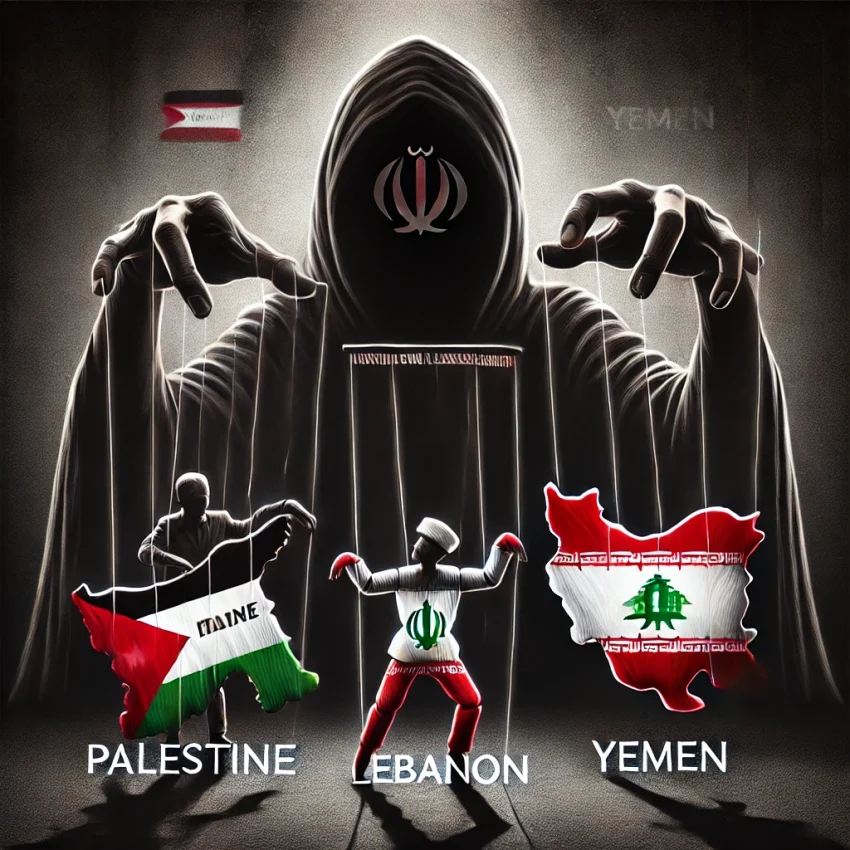Sometimes, countries—or more precisely, political factions within foreign countries like Hezbollah in Lebanon—launch a rocket at Israel, prompting Israel to respond with a missile. Without delving into the debate over whether Israel is justified in responding with a more powerful counterattack, we want to explore why a smaller entity would provoke a much stronger opponent, fully aware that the response will be more destructive. It seems illogical, yet it happens repeatedly. So, why does this occur? The motivations for Hezbollah are similar to those of Hamas:
- The primary reason is that Iran directs them to do so and provides financial support for such actions.
- The second reason is that a country facing severe economic instability and internal sectarian conflicts often needs an external enemy to divert the population’s attention and to reinforce its authority by positioning itself as the defender against this external threat.
Then why Iran is against Israel?
Ideological Opposition: Iran’s government, particularly under the Islamic Republic established in 1979, views Israel as an illegitimate state. Iranian leaders have consistently opposed Zionism and the existence of Israel, framing their stance within the broader context of pan-Islamic solidarity with the Palestinian cause. The Islamic Republic of Iran supports groups that align with its anti-Israel ideology, seeing the destruction of Israel as a religious and political objective. But that’s not enough, this is not the real reason…
Iran’s actions in supporting groups like Hamas in Palestine, Hezbollah in Lebanon and the Houthis in Yemen, as well as its provocations against Israel, are deeply rooted in a combination of geopolitical, ideological, and strategic factors:
- Regional Hegemony: Iran seeks to expand its influence in the Middle East, countering the influence of Sunni powers like Saudi Arabia and the U.S.-backed alliances. By supporting groups like Hezbollah and the Houthis, Iran aims to project power and create proxy forces that can challenge its regional rivals, including Israel, which is a key U.S. ally. This approach allows Iran to fight its adversaries indirectly, without engaging in direct conflict.
- Strategic Depth and Deterrence: Iran views Hezbollah in Lebanon and other allied groups as essential components of its deterrence strategy against Israel. By arming and funding Hezbollah, Iran ensures that Israel is confronted with a powerful adversary on its northern border. Hezbollah’s significant missile arsenal, largely supplied by Iran, serves as a deterrent, complicating any Israeli plans for military action against Iran, particularly concerning Iran’s nuclear program.
- Countering U.S. and Israeli Influence: Iran perceives Israel as a key U.S. ally and part of the broader Western strategy to contain and weaken Iran. By supporting Hezbollah, the Houthis, and other groups, Iran seeks to undermine U.S. and Israeli influence in the region. This also allows Iran to challenge U.S. military presence and policies, particularly in places like Yemen, where the conflict involves broader regional powers.
- Leverage in Negotiations: Iran uses its support for Hezbollah and other proxy groups as leverage in its broader geopolitical and diplomatic dealings, including negotiations over its nuclear program. By maintaining these proxy forces, Iran ensures it remains a key player in regional conflicts, giving it bargaining power in international negotiations.
In summary, Iran’s support for Hezbollah and the Houthis, and its provocations against Israel, are part of a broader strategy to expand its regional influence, counter Western and Israeli dominance, and support groups that align with its ideological stance against Israel.
Then why the West is often against Israel?
As part of its strategy for regional economic dominance and opposition to the West, Iran is strengthening its ties with Russia. In exchange of drones to be used to kill the ukraininans, this alliance allows Iran to leverage resources like Russia’s notorious Troll Factory (the Internet Research Agency, the fake news operation once led by the oligarch Prigozhin, who was later killed by the Kremlin). By spreading fake news through Russia’s networks—historically targeting leftist media and political parties, and now increasingly right-wing populist outlets—Iran and its allies can manipulate narratives to highlight only one side of the conflict: the suffering caused by war, while blaming Israel for the consequences. This strategy distracts from the true instigators of the conflict, such as Hamas and Hezbollah (under the orders of the same Iran). Given the complexity of politics, Iran can be confident that a portion of the Western public will fail to grasp the underlying conspiracy.
Andrea Bodei
EUCIF
The European Cyber Intelligence Foundation is a European non-profit think tank specializing in intelligence and cybersecurity, offering consultancy services to government entities

